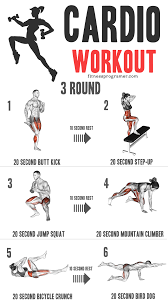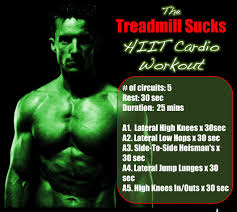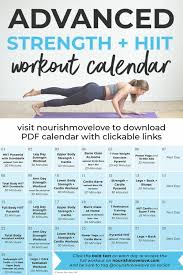The Benefits of Cardio Workouts for Your Health
Cardiovascular exercise, commonly known as cardio, is a crucial component of any fitness routine. These workouts involve activities that increase your heart rate and breathing rate, promoting the efficient circulation of oxygen and nutrients throughout your body. Let’s explore the numerous benefits of incorporating cardio workouts into your exercise regimen.
Improved Heart Health
Engaging in regular cardio exercises strengthens your heart muscle, enhancing its ability to pump blood efficiently. This can lower your risk of heart disease, high blood pressure, and other cardiovascular conditions.
Weight Management
Cardio workouts are effective for burning calories and aiding in weight loss or weight maintenance. By incorporating these exercises into your routine, you can boost your metabolism and create a calorie deficit that helps you achieve your fitness goals.
Enhanced Endurance
Consistent cardio training improves your stamina and endurance levels over time. This means you’ll be able to engage in physical activities for longer periods without feeling fatigued, allowing you to enjoy an active lifestyle with ease.
Mood Boosting
Cardiovascular exercise triggers the release of endorphins, also known as “feel-good” hormones, which can elevate your mood and reduce feelings of stress and anxiety. Regular workouts can contribute to improved mental well-being and overall happiness.
Increased Lung Capacity
Cardio workouts challenge your respiratory system, leading to improved lung function and increased lung capacity over time. This can enhance oxygen uptake efficiency during physical activity and daily tasks.
Better Sleep Quality
Engaging in cardio exercises on a regular basis can promote better sleep quality by helping you fall asleep faster and enjoy deeper restorative sleep cycles. Improved sleep patterns contribute to overall health and well-being.
Incorporating cardio workouts into your fitness routine offers a multitude of benefits that positively impact both your physical health and mental well-being. Whether you prefer running, cycling, swimming, or dancing, find an activity you enjoy and make it a regular part of your lifestyle for a healthier tomorrow!
6 Common Questions About Cardio Workouts: Benefits, Frequency, and Safety Tips
- What are the benefits of cardio workouts for overall health?
- How often should I engage in cardio exercises to see results?
- What are some effective cardio workouts that I can do at home?
- Can cardio exercises help with weight loss and fat burning?
- How does cardio training impact heart health and cardiovascular fitness?
- Are there any specific considerations or precautions to keep in mind when starting a new cardio workout routine?
What are the benefits of cardio workouts for overall health?
Cardio workouts offer a wide range of benefits for overall health. Engaging in cardiovascular exercises, such as running, cycling, or swimming, can significantly improve heart health by strengthening the heart muscle and enhancing its efficiency in pumping blood throughout the body. Additionally, cardio workouts aid in weight management by burning calories and boosting metabolism, making them an effective tool for weight loss or maintenance. These exercises also contribute to increased endurance, improved lung capacity, better sleep quality, and a mood boost through the release of endorphins. By incorporating cardio workouts into your fitness routine, you can experience enhanced physical and mental well-being while promoting a healthier lifestyle.
How often should I engage in cardio exercises to see results?
To see noticeable results from cardio exercises, consistency is key. It is generally recommended to engage in cardio workouts at least 3 to 5 times per week for optimal benefits. The frequency and duration of your cardio sessions may vary depending on your fitness goals, current level of fitness, and overall health status. To see improvements in cardiovascular endurance, weight management, and overall health, aim for a minimum of 150 minutes of moderate-intensity cardio exercise per week, or 75 minutes of vigorous-intensity exercise. Remember to listen to your body, gradually increase the intensity and duration of your workouts, and consult with a fitness professional for personalized guidance on creating an effective cardio routine tailored to your needs.
What are some effective cardio workouts that I can do at home?
When it comes to effective cardio workouts that you can do at home, there are plenty of options to choose from that require minimal equipment and space. Some popular choices include high-intensity interval training (HIIT) routines, which involve short bursts of intense exercise followed by brief rest periods. You can also try jumping jacks, mountain climbers, burpees, or running in place to get your heart rate up. Dancing to your favorite music, cycling on a stationary bike, or following online cardio workout videos are other great ways to break a sweat and improve your cardiovascular fitness right in the comfort of your own home.
Can cardio exercises help with weight loss and fat burning?
Cardio exercises are highly effective in aiding weight loss and fat burning. By engaging in activities that elevate your heart rate, such as running, cycling, or swimming, you can create a calorie deficit that contributes to shedding excess body fat. Cardio workouts not only help burn calories during the exercise session but also boost your metabolism, allowing your body to continue burning calories even after you’ve finished working out. Consistency and intensity are key when it comes to using cardio exercises as a tool for weight loss and fat burning, making them a valuable component of any fitness regimen aimed at achieving these goals.
How does cardio training impact heart health and cardiovascular fitness?
Cardio training plays a pivotal role in enhancing heart health and cardiovascular fitness by strengthening the heart muscle and improving its efficiency in pumping blood throughout the body. Engaging in regular cardiovascular exercises, such as running, cycling, or swimming, increases heart rate and breathing rate, leading to improved circulation of oxygen and nutrients to various tissues and organs. This process helps reduce the risk of heart disease, high blood pressure, and other cardiovascular conditions by promoting better blood flow and overall cardiac function. Additionally, cardio training boosts endurance levels, enhances lung capacity, and contributes to better overall cardiovascular fitness, ultimately supporting a healthier heart and improved well-being.
Are there any specific considerations or precautions to keep in mind when starting a new cardio workout routine?
When starting a new cardio workout routine, there are several key considerations and precautions to keep in mind to ensure a safe and effective experience. It is important to begin gradually and listen to your body, gradually increasing the intensity and duration of your workouts as your fitness level improves. Proper warm-up and cool-down exercises are essential to prevent injuries and prepare your body for the workout ahead. Additionally, staying hydrated, wearing appropriate footwear and clothing, and consulting with a healthcare professional if you have any underlying health conditions are crucial steps to take before embarking on a new cardio regimen. By taking these precautions and listening to your body’s signals, you can enjoy the benefits of cardio exercise while minimizing the risk of injury or overexertion.




